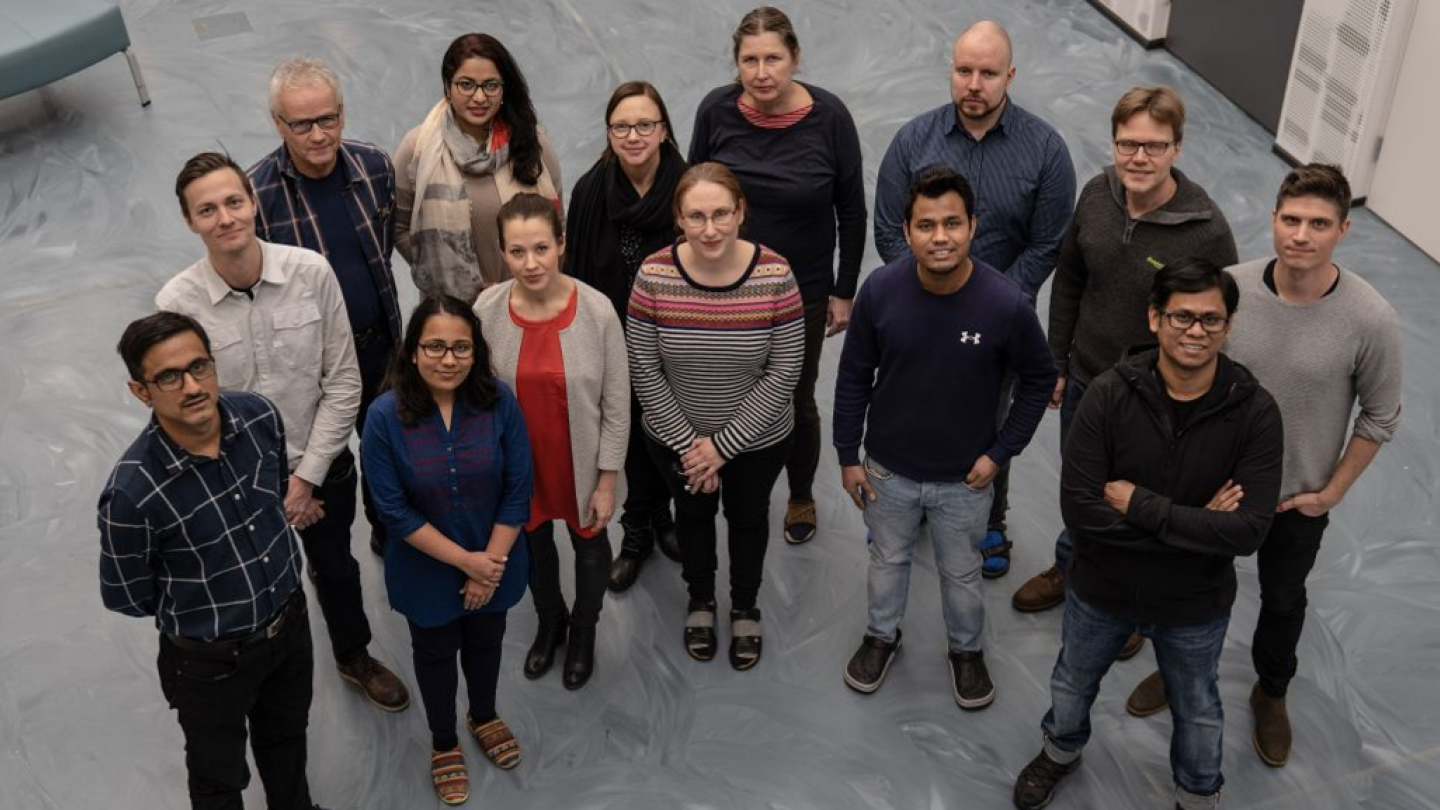Rapid Test for Ovarian Cancer Detection Developed at the University of Turku Received an International Innovation Award
A rapid test for ovarian cancer detection developed at the University of Turku has received the international Rapid Testing Innovation Award. The awarded article is part of the dissertation of Doctoral Candidate Sherif Bayoumy. Next, the cancer diagnostics team of the Biotechnology unit at the Department of Biochemistry aims to expand the research to other cancer types.
Doctoral Candidate in Molecular Biotechnology and Diagnostics Sherif Bayoumy and his research group have been recognised with an international 2020 Rapid Testing Innovation Award. The Award is given annually to an innovation in diagnostics and is sponsored by DCN Dx and DIALUNOX GmbH.
The awarded innovation is a rapid test for ovarian cancer detection. The finalists of the competition included higher education institutions in engineering as well as biotechnology companies, such as ETH Zurich ja Wyss Institute Harvard. Bayoumy presented his research in a virtual final, and the audience voted for the winner. The Award is $10,000.
– The Award is extremely important to our research group as it recognises our hard work. It means that we will be more inclined to defend our position and to be in the front lines when it comes to developing cancer diagnostics research. The Award helps to boost our resources and our unit’s profile as it shows our expertise and research focus, describes Bayoumy.
The 2020 Rapid Testing Innovation Award incentivises entrepreneurship in rapid testing development. Rapid tests can be related to e.g., human and veterinary health, environment or pharmaceutical industry. The innovation does not need to be a marketed product; however, it has to be developed beyond the conceptual stage and far enough along in the development to produce presentable data.
– Applications are invited from academic, government and corporate groups or individuals who demonstrate a novel innovation or application for point-of-care tests, tells Bayoumy.
Bayoumy has been working at the Biotechnology unit since 2018. He is grateful for the support and career opportunities he has received.
– The biggest lesson for me has been the fact that when mentors and supervisors inspire young passionate researchers, they are able to accomplish more in their careers.
Bayoumy believes that this recognition shows diagnostic companies that the next step is to develop more reliable, affordable and user-friendly tests for ovarian cancer. The aim is to also expand rapid test development to include other cancer types.
More Accurate Early Diagnostics for Detecting Other Cancers
Researchers at the Biotechnology unit conduct long-term research in early diagnostics. The goal of the research group is to find new and better markers as well as technical test formats for many different cancer types. The work on early cancer diagnostics is carried out as a part of the FICAN West or the Western Cancer Center.
The cancer research group is led by Professor Kim Pettersson. The research group involves circa 20 researchers whose expertise combines basic and applied research.
One of the most significant fields of study at the Biotechnology unit since the 1990s has been cancer diagnostics. Innovations from the University of Turku have been applied to patient care, particularly in prostate cancer diagnostics, for example, as commercialised by US based OPKO Health.
About 10 years ago, a novel method was discovered for biomarker identification benefitting from modified molecular sugar structures in cancer tissues and in the blood. The new diagnostic method is based on the light-producing nanoparticles that enable extremely sensitive identification of cancer-specific biomarkers. The method works best with biomarkers that contain multiple altered sugar structures, such as CA125 used in ovarian cancer diagnostics.
– The awarded work of Sherif Bayoumy is an excellent example of how a marker that works poorly in primary diagnostics can, with a novel identification principle, significantly improve early recognition of cancers with poor prognosis, says Pettersson.
Basic research, clinical expertise and long-term patient records of the Department of Obstetrics and Gynaecology at Turku University Hospital have played an important role in the ovarian cancer project. In addition, funding provided by the Nordic Cancer Union has made it possible to create a solid Nordic collaborative network.
– It is crucial for the success of our cancer diagnostics project to create, from the early discovery phase onwards, close collaboration with clinical partners who can see the potential impact of our project on the clinical management of cancer patients. Especially, when it comes to cancers that are frequently detected too late.
The research group is seeking to expand the technical test concept based on modified sugar structures to other cancers where early diagnostics is urgently needed.
– Even though our ovarian cancer project has progressed the furthest, similar research is conducted especially in relation to breast, lung, colon, pancreas, prostate and bladder cancers as well as cancers in the head and neck area. Our research group seek to combine basic research findings from the biomarker discovery phase to clinical and applied research, with the overarching goal of developing reliable and simple diagnostic tools for early cancer detection, notes Pettersson.
Research on cancer diagnostics has been funded by Jane and Aatos Erkko Foundation, Cancer Society of Finland, Academy of Finland and Nordic Cancer Union.
> Rapid Test for Ovarian Cancer Detection Developed at the University of Turku (news 11 Sept 2020)
> News article on the competition organiser's website




